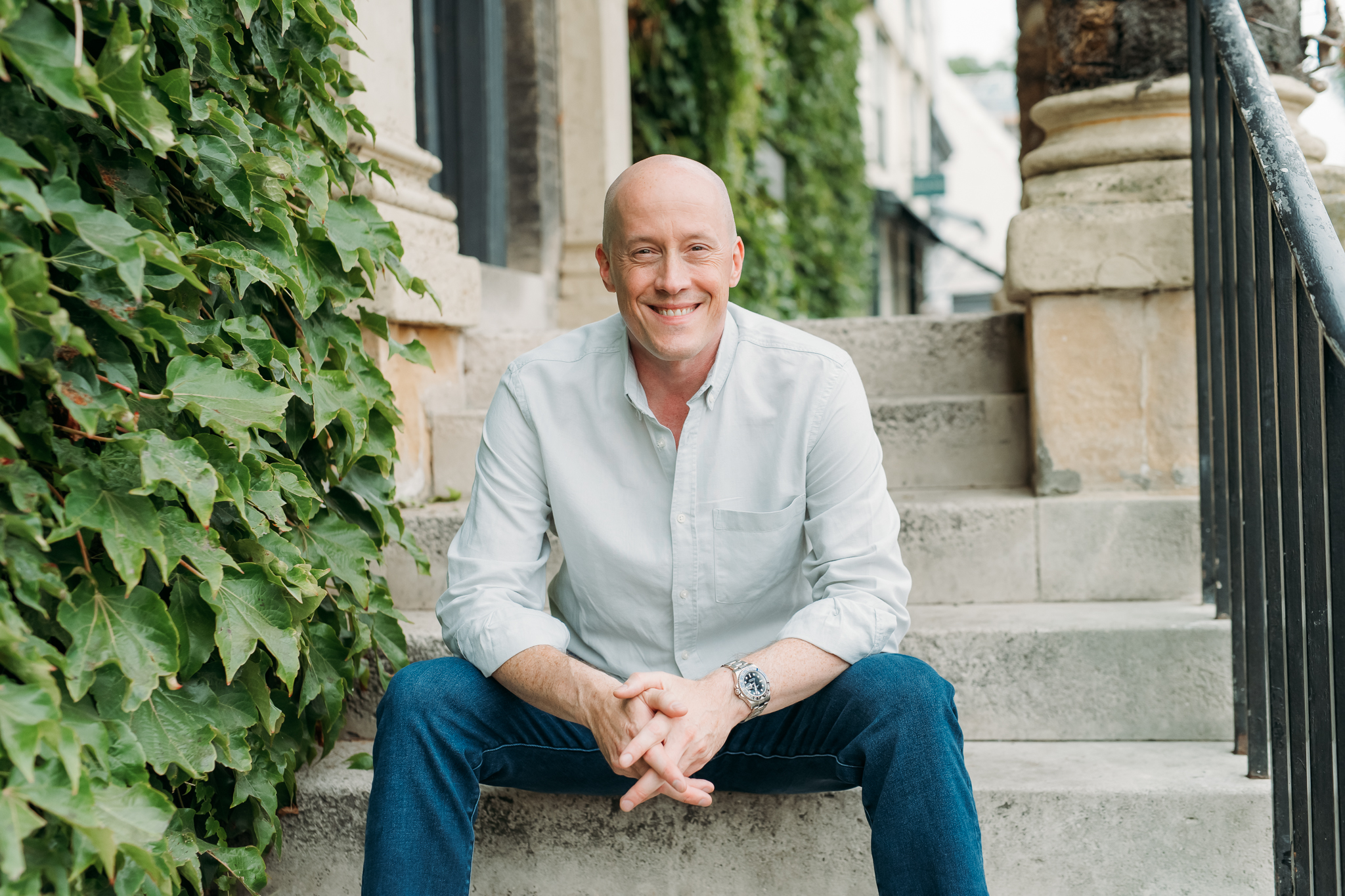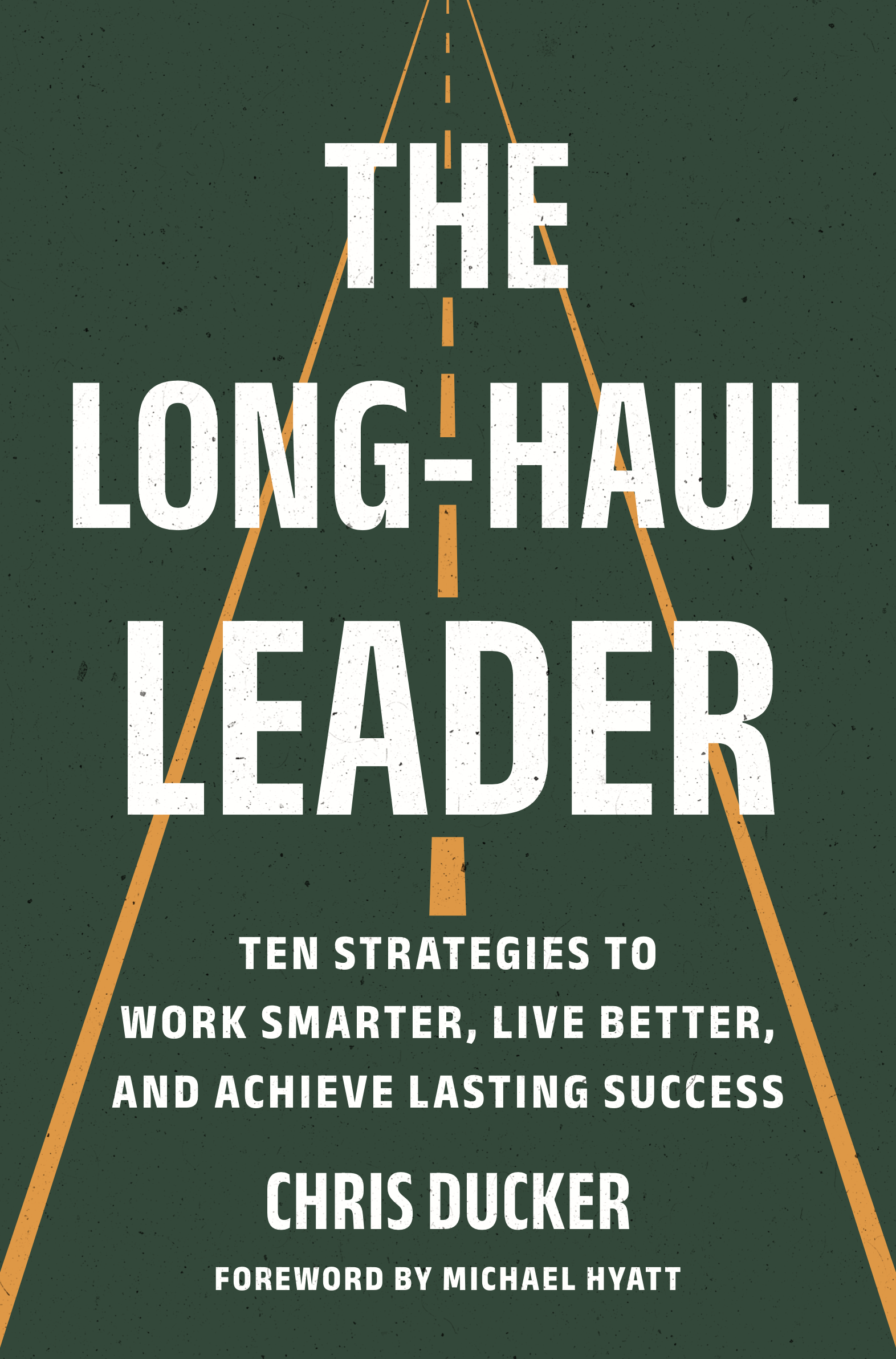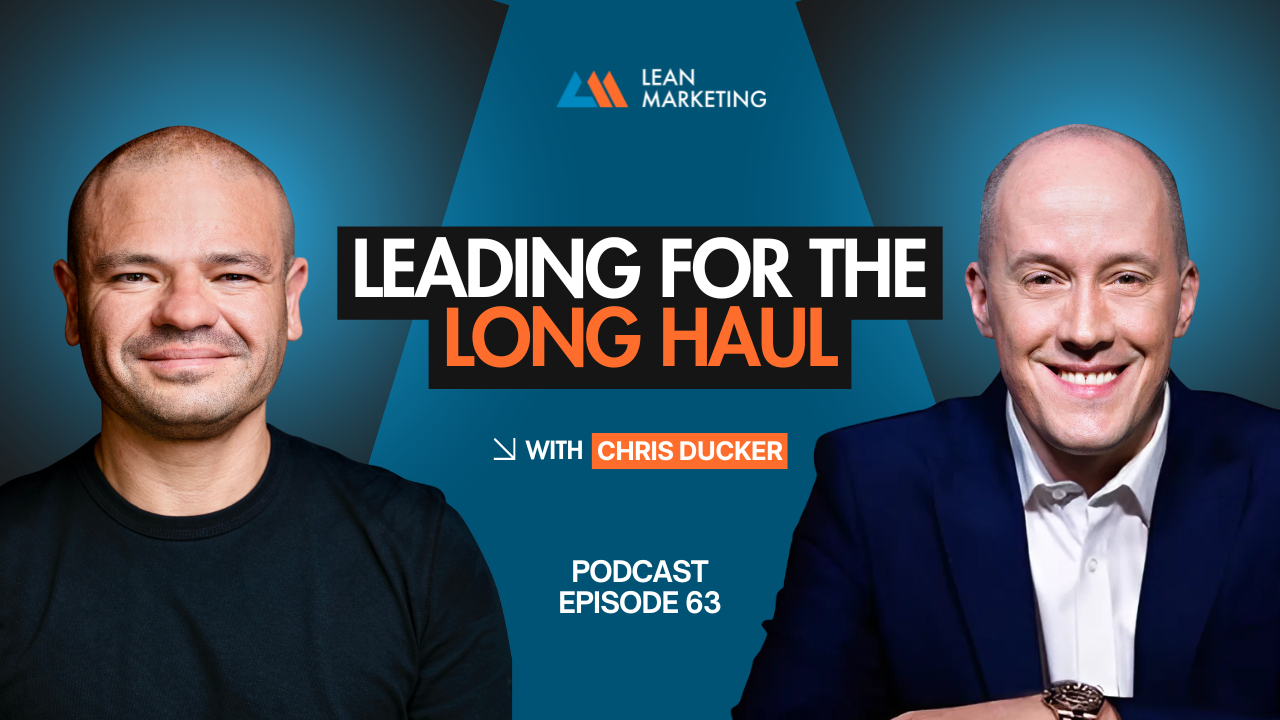Unlike what Gary Vaynerchuk, Elon Musk, and Dan Lock would have you believe, chasing endless hustle doesn’t lead to long-term success. It leads to burnout.
You can still build a very successful business without grinding away for endless hours, taking non-stop action.
From my personal experience, slowing down, protecting your energy, and staying in your zone of genius can help you build a lasting legacy. And I’m not the only successful entrepreneur to have experienced this. In my latest podcast with Chris Ducker, we share the lessons we’ve learned along the way to building 7-figure businesses.
For years, entrepreneurs have been told the same story: if you just work harder and put in longer hours, you’ll win.

Chris Ducker knows that story all too well. He’s built multiple seven-figure businesses, written bestselling books, and lived 15-hour workdays. And in our conversation on the Lean Marketing Podcast, he put it plainly: hustle culture doesn’t build lasting businesses, it burns them down.
It’s not about working more.
It’s about working smarter, protecting your energy, and playing the long game.
Would you say you’re currently hustling or optimizing?
Why should you listen to Chris Ducker? Because he’s lived the hustle and grind life, as well as the work smarter, not harder approach.
He’s pushed so hard that burnout has shown up both mentally and physically. Twice.
The second time was during the pandemic, when he found himself in full adrenal fatigue. Running on fumes, his energy would be gone by midday, but come nighttime, he’d struggle to sleep.
That was the wake-up call he needed to realize that you can’t out-hustle biology.
The truth is that most entrepreneurs often sacrifice their health in the name of growth. But long-term success only comes when you invest in recovery, not just output.
I’ve seen this again and again with business owners I’ve coached. They want to scale, but without the right business systems, all growth does is create more chaos.
Systems are your safeguard against burnout because they enable your business to run smoothly without running you into the ground.
One of the most powerful shifts Chris shared was the importance of living in your zone of genius.
That means focusing only on the tasks that only you can do and delegating the rest. For Chris, that means writing, speaking, training, and connecting with people. Not fiddling with Facebook ads or scheduling Instagram posts.
The biggest mistake entrepreneurs make is believing that no one can do it better than they can. But as Chris and I both learned, when you hire well, you quickly realize your team often does it better.
And that’s the point. By hiring good people and delegating, you free yourself up. Now you can focus on the handful of things where you’re truly world-class.
I wrote more about this in The Genius Zone, where I break down exactly how to identify your unique strengths and build your business around them. It’s not just about efficiency. It’s about protecting your most valuable asset: your focus.
Because when you’re scattered, you can’t give your best.
Many entrepreneurs fall into the trap of viewing every milestone as a moving target. First, it’s $10K a month. Then $100K. Then $1M. Then $30M before you “allow” yourself to finally slow down and go after the things you want to do, like taking piano lessons.
Chris put it simply: the question every entrepreneur needs to ask is, 'How much is enough?’
For most of us, the number is far lower than we think. The jump from struggling to being comfortable is life-changing. The jump from comfortable to ultra-wealthy is diminishing returns.
True wealth isn’t measured by the commas in your bank account. It’s measured by freedom, time, and impact.
Unsurprisingly, slowing down doesn’t just make you happier. It makes you more effective.
Chris pointed to studies showing that entrepreneurs who prioritize recovery outperform their peers by 20%. And those who engage in creative hobbies like painting, music, and even bonsai boost their performance by up to 30%.
That’s not fluff. That’s hard data showing that downtime isn’t wasted time. It’s fuel for sharper decisions, more creativity, and better leadership.
Chris has sold businesses, built audiences, and written books that changed lives. However, when I asked him about legacy, he didn’t discuss money. He talked about being remembered as a good friend. A great dad. Someone who made life better for others.
That’s a powerful reminder: your legacy isn’t what you build, it’s who you impact.
Businesses can be sold, brands can fade, but the people you help, their lives carry your legacy forward.
Take a moment to really think about that. What is the legacy you’re currently leaving? If I had to ask your friends or family right now what your greatest legacy is, what do you think they’d answer?

Chris’s new book, The Long Haul Leader, is about exactly this: how to build success that doesn’t just peak, but lasts. Because success shouldn’t cost you your health, family, or sanity.
As entrepreneurs, we love the sprint. But if you want to win in business and in life, you need to train for the marathon.
So start by writing down a list of things that are simply a distraction.
What are you doing daily or weekly that isn’t a good use of your time?
What could you be delegating?
Do you have someone you could hand these tasks over to?
If not, what is the role you need to hire for in order to remove these tasks from your plate? Because at the end of the day, they’re just noise.
For me, the success of your business is directly impacted by the people you hire to build it. It’s why I surround myself with A-players.
If you don’t have A-players on your team, it’s time to go back to the drawing board.
If you’re stuck in hustle mode, take this as permission to stop. You’ve got nothing to prove.
Instead:
Because success isn’t about burning out fast. It’s about building something that lasts.
Want the full conversation?

Listen to my chat with Chris Ducker on the Lean Marketing Podcast, where we dive deep into leadership, burnout, and what it really takes to succeed for the long haul.
You'll get new articles delivered straight to your inbox, plus special subscriber-only content such as podcasts, videos and live training events.


Get free weekly emails that make you smarter at marketing and help you grow your business